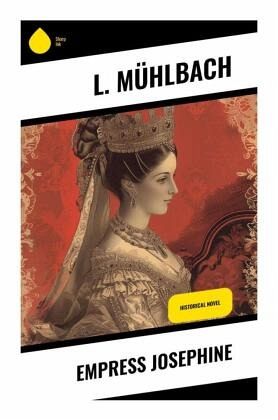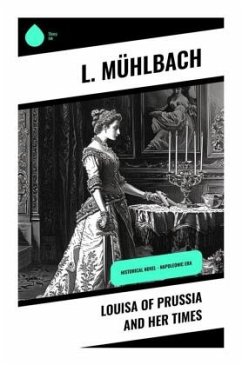
Empress Josephine
Historical Novel
Übersetzung: Binet, W.
Versandkostenfrei!
Versandfertig in 6-10 Tagen
15,50 €
inkl. MwSt.
Weitere Ausgaben:

PAYBACK Punkte
0 °P sammeln!
In "Empress Josephine," L. Mühlbach intricately weaves the narrative of one of history's most captivating figures, the first wife of Napoleon Bonaparte, Josephine de Beauharnais. This historical novel, characterized by Mühlbach's eloquent prose and keen attention to period detail, explores the tumultuous world of early 19th-century France. Through a blend of biographical facts and imaginative storytelling, Mühlbach illuminates Josephine's complex persona-a woman of resilience, charm, and ambition, navigating the treacherous waters of love and political ambition amidst the backdrop of the Na...
In "Empress Josephine," L. Mühlbach intricately weaves the narrative of one of history's most captivating figures, the first wife of Napoleon Bonaparte, Josephine de Beauharnais. This historical novel, characterized by Mühlbach's eloquent prose and keen attention to period detail, explores the tumultuous world of early 19th-century France. Through a blend of biographical facts and imaginative storytelling, Mühlbach illuminates Josephine's complex persona-a woman of resilience, charm, and ambition, navigating the treacherous waters of love and political ambition amidst the backdrop of the Napoleonic Wars. The book engages readers with its vivid characterizations and rich descriptions, making it a quintessential example of 19th-century historical fiction, reflecting the broader literary movement that sought to bring the past to life through engaging narratives. L. Mühlbach, a prolific author known for her historical novels, drew inspiration from her fascination with powerful women in history. Having documented various pivotal moments in German and French history, Mühlbach possessed a unique insight into the lives of influential figures, particularly those like Josephine, whose stories often intertwined with the fates of empires. Mühlbach's personal journey as a woman in the literary world also informs her portrayal of Josephine, infusing her characters with depth and their struggles with authenticity. "Empress Josephine" is highly recommended for readers who appreciate historically rooted narratives that offer deep psychological insights into their characters. Mühlbach's portrayal not only captivates the imagination but also invites reflection on the personal sacrifices endured by women in the shadows of greatness. This historical tapestry, rich in emotion and splendor, presents a compelling exploration of love, ambition, and the relentless pursuit of identity, making it a must-read for anyone interested in the intricate interplay of history and personal narratives.













